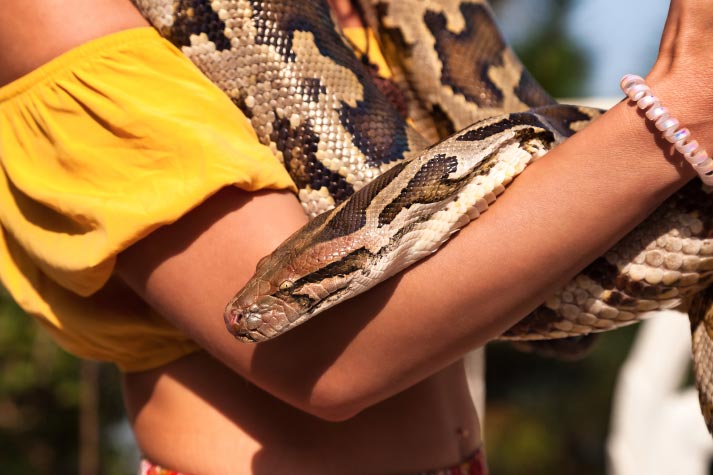


18 Mar
In today’s world, pet ownership is more diverse than ever. While dogs and cats remain popular, many people are increasingly being drawn to the novelty of exotic pets. From reptiles to rare birds, these unique companions require careful consideration before adoption.
Some such species are endangered or protected, making ownership, travel, and even routine veterinary care (such as a rabies titer test) more complicated. If you are thinking about bringing an exotic pet into your home, thorough research is essential to ensure responsible care.
The term "exotic pet" has a broad definition. In general, the term refers to any animal that is not native to a region, but is kept as a household companion. This can include birds, reptiles, small mammals, amphibians, and even unusual insects. Some of the most common exotic pets include macaws, chinchillas, hedgehogs, snakes, and tarantulas.
People choose exotic pets for various reasons. Some enjoy the challenge of caring for an unconventional companion, while others appreciate their rarity and the sense of prestige they bring. However, owning an exotic pet is not just about novelty; these animals have specialized needs that require commitment and expertise.
Unlike traditional pets, exotic animals have extremely specific dietary requirements. A reptile’s diet is significantly different from that of a bird or small mammal. Some exotic pets thrive on vegetation, while others require a protein-rich diet with specific meat sources or maybe even live prey.
If you are considering an exotic pet as a companion, research its dietary needs in depth. Some species require supplements to compensate for nutrients they would naturally obtain in the wild. For instance, certain reptiles need calcium supplements to prevent metabolic bone disease, while exotic birds benefit from a varied diet rich in fruits, nuts, and seeds.
Providing high-quality food is crucial, as is proper storage. Improperly stored food can lead to contamination, which poses serious health risks. Whether it is fresh produce, specialized kibble, or live insects, ensure that your pet’s food supply is clean, fresh, and stored correctly to maintain its nutritional value.
Creating the right living space is vital for an exotic pet’s well-being. Unlike cats and dogs which adapt easily to human homes, exotic pets often require custom-built environments that mimic their natural habitat.
Temperature control, humidity levels, and ventilation play a significant role, especially for exotics like reptiles and amphibians. A pet snake, for instance, needs a temperature gradient within its enclosure to regulate its body heat, while tropical birds thrive in warm, humid conditions.
Space is another important factor. Larger exotic pets need ample room to move, climb, or burrow, while smaller creatures may require multi-level enclosures. Some exotic pets need specific substrates, hiding spots, or climbing structures to feel secure. A poorly designed habitat can lead to stress, illness, or behavioural problems, so investing in the right enclosure and accessories is crucial.
Finding a veterinarian who specializes in exotic pets can be challenging. Not all vets have the expertise to treat non-traditional animals, and some conditions require highly specialized care. Before adopting an exotic pet, research local veterinary clinics to ensure you have access to a qualified professional.
Exotic pets are prone to a variety of health issues. Nutritional deficiencies, respiratory infections, skin conditions, and dental problems are common concerns. Regular checkups help detect and prevent potential illnesses before they become severe. Preventative care, including vaccinations, parasite control, and proper hygiene is key to keeping your pet healthy.
While exotic pets can be rewarding companions, they come with significant responsibilities. Unlike traditional pets, many exotic animals have complex care requirements, legal restrictions, and ethical considerations.
Here are a few things to consider:
Exotic pets can be fascinating and rewarding companions, but they are certainly not for everyone. They require dedication, knowledge, and a willingness to adapt your lifestyle to meet their needs. If you are considering adopting one, do your homework. Understand their diet, housing, and healthcare requirements, and be prepared for the long-term commitment they demand.
Most importantly, never acquire an exotic pet on impulse. Every animal deserves responsible care, and neglecting an exotic pet due to lack of research or preparation can have serious consequences. If you can meet their needs, exotic pets can be a unique and fulfilling addition to your life, but only if you are ready for the challenge and commitment.

AUTHOR’S BIO
ARSH BHARDWAJ
I am passionate about language, storytelling and the human urge to connect Having paid close attention to marketing and branding as a craft for some time, I'm eager as ever to indulge my passion for prose.